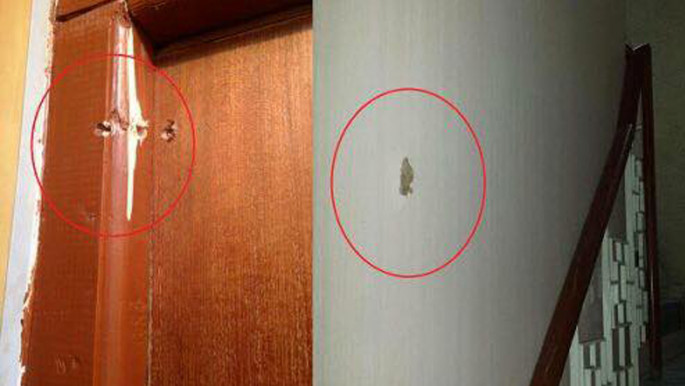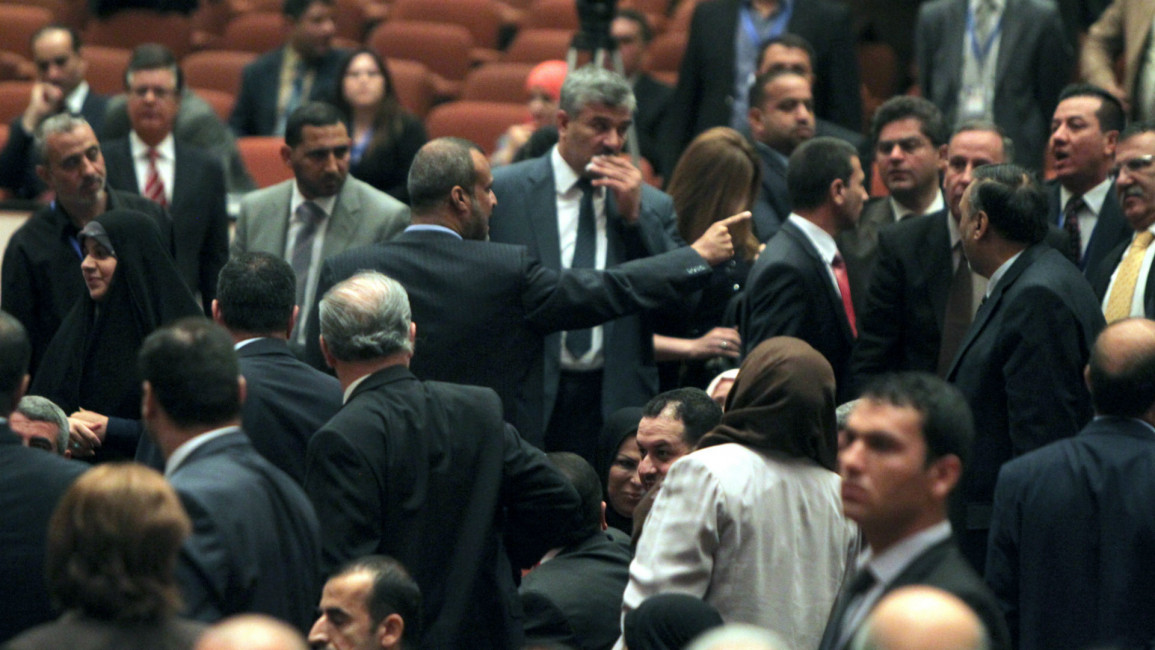Iraqi MP shoots at opponent at TV station
The fracas between member of parliament Kadhim al-Sayadi, of the State of Law bloc, and Citizen's Bloc spokesman Baligh Abu Gallal - both members of Shia parties - broke out at the al-Dijla TV station on Tuesday night.
"As Sayadi was leaving the television station building, an argument broke out with Abu Gallal that quickly escalated into an exchange of insults," an employee of the TV station told al-Araby al-Jadeed's Iraq correspondent.
"Sayadi then took out his personal pistol and began shooting at Abu Gallal, who was taken into studio by our security guards," the employee added.
 |
|
| Bullet marks in the TV station [AAAJ] |
Abu Gallal has said that the MP attacked him verbally then called his guards to help take him outside the building, and, when that failed, the group began shooting at him.
Sayadi has accused Abu Gallal of lying and denied direct involvement in the shooting, asserting that one of his guards opened fire, and that he was not carrying a weapon himself, according to al-Araby al-Jadeed's Arabic service.
"The dispute between us at the channel began when I requested that he stop targeting me in the media," said Sayadi.
Abu Gallal said that he "does not respond on this low level".
Sayadi was beaten in parliament by other lawmakers earlier this year after vocally objecting to voting procedures.
Iraq's 328-member parliament is riven by divisions within its Shia majority, as well as between it and Sunni Arab and Kurdish lawmakers, and has struggled to pass much in the way of significant legislation.
This week, Iraqi lawmakers made it illegal to post sectarian hate speech on Facebook and Twitter, in an attempt to ease the country's deep-seated religious and ethnic divisions.



